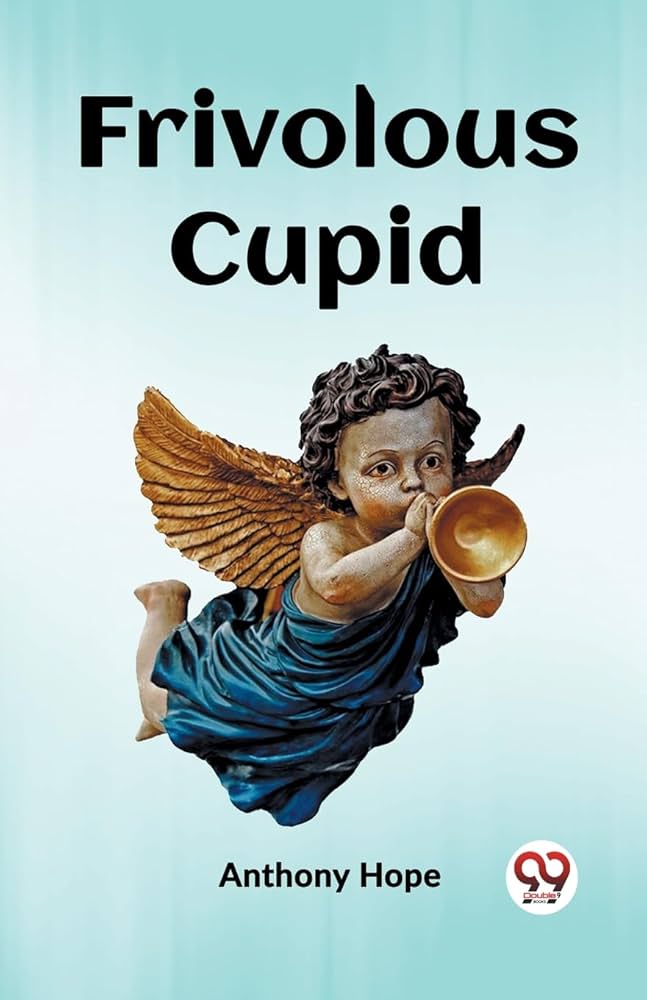Chapter VI — Frivolous Cupid
byChapter VI begins with the quiet rustle of leaves and the hum of bees in an English orchard, where a philosopher sits reading, lost in his abstract thoughts. He is deeply immersed in a dense treatise on ontology, absorbed in reasoning that floats high above the tangible world around him. His detachment from nature’s softness and life’s emotional tides is deliberate, shielding himself behind intellectual walls. It is in this meditative state that Miss May finds him. She arrives, seemingly playful, yet driven by a quiet urgency. Presenting a romantic dilemma disguised as literary discussion, she poses a choice between two suitors—one dependable, the other admired but indifferent. Beneath her hypothetical tone lies vulnerability, seeking not advice but recognition from someone who remains alarmingly blind to her meaning.
The philosopher listens carefully, responding not with feeling, but with logic rooted in probability and sensibility. He suggests that affection, when mutual and steady, offers a more reliable path to happiness than infatuation with someone who may never reciprocate. His tone is gentle but clinical, as though solving a riddle rather than addressing a heart at stake. Miss May receives his response quietly, though it pricks at her hopes. In her carefully veiled narrative, she had dared to express what could not be spoken directly. The philosopher remains unaware, interpreting her dilemma as abstract. Her admiration, once subtly offered, now fades beneath a blanket of resignation. She nods in agreement but offers no joy in her reply.
She presses on, asking whether the woman in her story might someday be loved by the one she truly desires. Again, he turns to logic, warning against building dreams on uncertainty. The philosopher cannot see that she is not merely telling a story—she is exposing her own heart. This unawareness speaks volumes. It shows the gap between intellect and emotion, a divide too wide to bridge with argument alone. Her expression falters, but she masks it quickly with a smile. There is grace in her composure, despite the slow ache of rejection unspoken. She has come seeking possibility, only to be offered reassurance in practicality.
As their conversation ends, the philosopher believes he has done her a service. He feels satisfied, having offered clarity to a mind in confusion. But Miss May walks away quieter than before. She leaves with no confession, no plea, only a gentle farewell. He watches her go, then turns back to his book, his world of abstraction resuming its rhythm. The orchard’s beauty remains unchanged, yet something tender has been missed. In the balance between heart and reason, only one voice was heard. Her presence fades, like sunlight slipping behind leaves, leaving the philosopher none the wiser. In his world, all remained orderly—but not whole.
The story reflects a recurring theme in relationships: the misalignment between clarity of thought and depth of feeling. It shows how people, even when deeply intelligent, can misread what is in plain view when emotion is filtered through theory. The philosopher did not lack kindness—he lacked perception of what was real in front of him. Miss May’s restraint and dignity offer a portrait of quiet heartbreak, of a woman whose feelings were exposed in the only way she could safely risk them. This chapter reminds readers that behind questions asked in jest or through allegory, truths may rest, waiting to be heard. Not all advice needs to be practical; sometimes, the heart asks to be understood, not corrected.
Romantic misunderstandings often arise not from ill will, but from differing languages of expression. The philosopher spoke the language of caution and structure; Miss May spoke in hints, glances, and literary metaphors. These different dialects of love never quite intersected. Her silence, in the end, was not consent but surrender. And though the day continued as if nothing had shifted, a delicate possibility had quietly withered. For the reader, the story resonates not through dramatic revelation, but through the ache of what could have been if one heart had heard the other.

